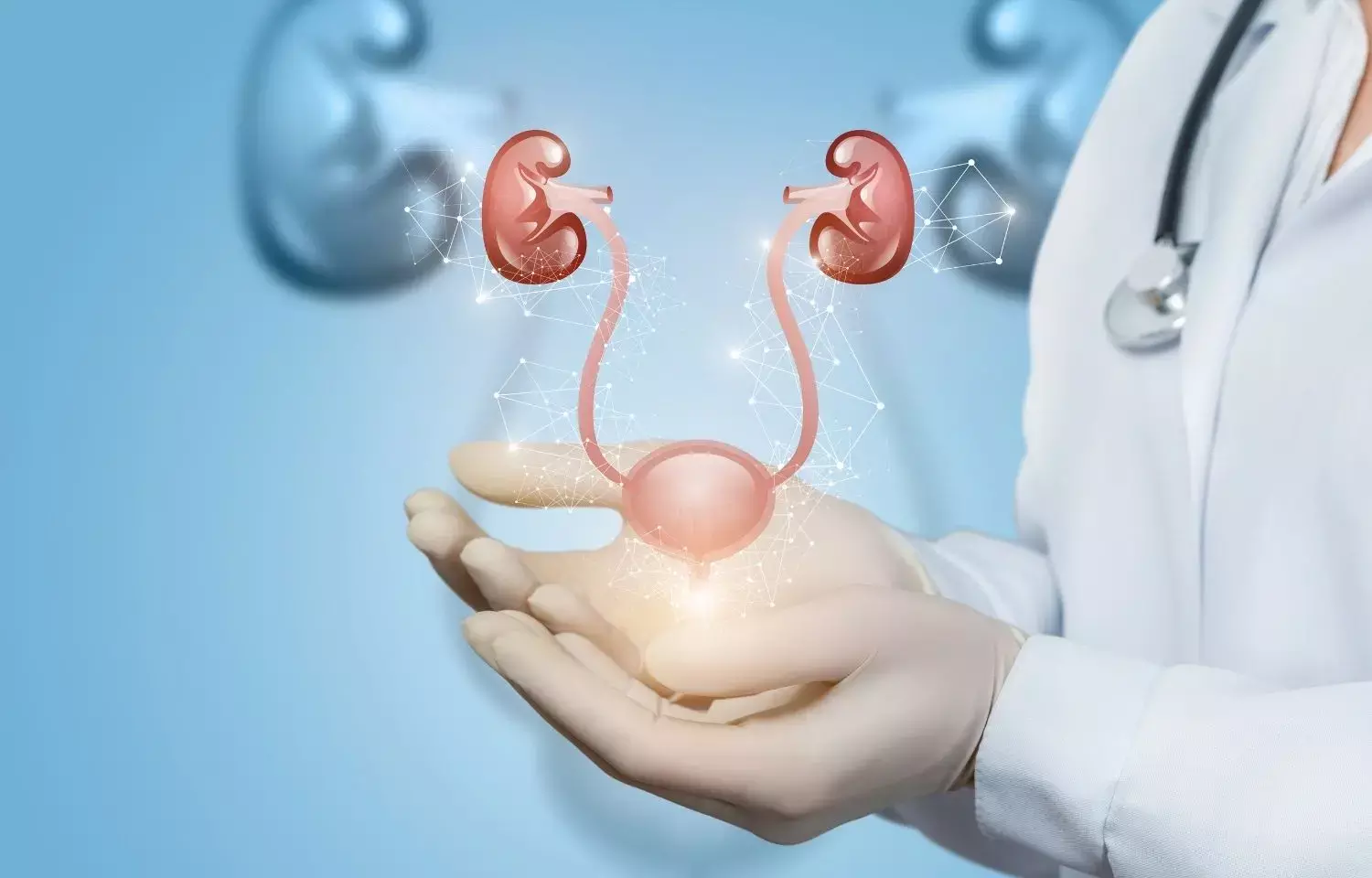- Home
- Medical news & Guidelines
- Anesthesiology
- Cardiology and CTVS
- Critical Care
- Dentistry
- Dermatology
- Diabetes and Endocrinology
- ENT
- Gastroenterology
- Medicine
- Nephrology
- Neurology
- Obstretics-Gynaecology
- Oncology
- Ophthalmology
- Orthopaedics
- Pediatrics-Neonatology
- Psychiatry
- Pulmonology
- Radiology
- Surgery
- Urology
- Laboratory Medicine
- Diet
- Nursing
- Paramedical
- Physiotherapy
- Health news
- Fact Check
- Bone Health Fact Check
- Brain Health Fact Check
- Cancer Related Fact Check
- Child Care Fact Check
- Dental and oral health fact check
- Diabetes and metabolic health fact check
- Diet and Nutrition Fact Check
- Eye and ENT Care Fact Check
- Fitness fact check
- Gut health fact check
- Heart health fact check
- Kidney health fact check
- Medical education fact check
- Men's health fact check
- Respiratory fact check
- Skin and hair care fact check
- Vaccine and Immunization fact check
- Women's health fact check
- AYUSH
- State News
- Andaman and Nicobar Islands
- Andhra Pradesh
- Arunachal Pradesh
- Assam
- Bihar
- Chandigarh
- Chattisgarh
- Dadra and Nagar Haveli
- Daman and Diu
- Delhi
- Goa
- Gujarat
- Haryana
- Himachal Pradesh
- Jammu & Kashmir
- Jharkhand
- Karnataka
- Kerala
- Ladakh
- Lakshadweep
- Madhya Pradesh
- Maharashtra
- Manipur
- Meghalaya
- Mizoram
- Nagaland
- Odisha
- Puducherry
- Punjab
- Rajasthan
- Sikkim
- Tamil Nadu
- Telangana
- Tripura
- Uttar Pradesh
- Uttrakhand
- West Bengal
- Medical Education
- Industry
Glycogen deposition in detrusor wall may not hinder urodynamic parameters in BHP patients

In patients with benign prostate hyperplasia (BPH) facing Bladder Outlet Obstruction (BOO), the increased amount of glycogen deposition in the detrusor muscle did not correlate with any severity of symptoms and duration or urodynamic findings. The findings were published in the World Journal of Urology.
A prospective study was carried forward by Iraklis Mitsogiannis to evaluate if the glycogen deposition within the detrusor muscle of the bladder has any correlation with the urodynamic findings/ symptoms in patients undergoing bladder outlet obstruction due to benign prostate hyperplasia.
A total of 50 patients with BPH (Study Group) and 20 individuals (Control Group) were analyzed completely. BOO was confirmed with the help of pressure-flow studies. Glycogen deposition within the bladder wall was the main outcome focused. And so, Bladder tissue biopsies were obtained from all the participants. Further histological assessment was performed using Periodate Acid Schiff's (PAS) stain for the analysis of detrusor glycogen content. Score of the obtained glycogen ranged from 0 (no glycogen granules stained) to 3 (glycogen granules within the detrusor adjacent to the urothelium stained).
The findings of the study were:
- Of the 50 patients and 20 controls included, increased glycogen deposition was noticed in 37 (74%) and 2 (10%) patients in the Study and Control Group, respectively.
- Subgroup analysis showed no statistically significant difference between glycogen deposition score and IPSS, maximum detrusor pressure at maximum flow (PdetQmax) and duration of LUTS.
- The history of retention was the only reliable variable that could predict high glycogen deposition in the multivariate logistic regression.
Results of the urodynamic parameters assessed did not bring out any reliable link between the amount of glycogen deposition within the detrusor wall and severity of urodynamic symptoms.
Source:
Mitsogiannis, I., Komninos, C., Karakosta, A., Papatsoris, A., Skolarikos, A., & Tzelves, L. (2022). "Glycogen deposition in the detrusor muscle of patients with bladder outlet obstruction (BOO) due to benign prostate hyperplasia (BPH); correlation with the urodynamic parameters.''. In World Journal of Urology. Springer Science and Business Media LLC. https://doi.org/10.1007/s00345-022-04181-2
Neuroscience Masters graduate
Jacinthlyn Sylvia, a Neuroscience Master's graduate from Chennai has worked extensively in deciphering the neurobiology of cognition and motor control in aging. She also has spread-out exposure to Neurosurgery from her Bachelor’s. She is currently involved in active Neuro-Oncology research. She is an upcoming neuroscientist with a fiery passion for writing. Her news cover at Medical Dialogues feature recent discoveries and updates from the healthcare and biomedical research fields. She can be reached at editorial@medicaldialogues.in
Dr Kamal Kant Kohli-MBBS, DTCD- a chest specialist with more than 30 years of practice and a flair for writing clinical articles, Dr Kamal Kant Kohli joined Medical Dialogues as a Chief Editor of Medical News. Besides writing articles, as an editor, he proofreads and verifies all the medical content published on Medical Dialogues including those coming from journals, studies,medical conferences,guidelines etc. Email: drkohli@medicaldialogues.in. Contact no. 011-43720751


